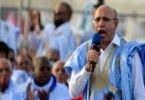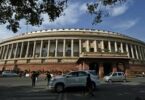TEHRAN (AFP): The main coalition of reformists in Iran said on Saturday that it would only participate in this month’s presidential election if at least one of their candidates is approved to run.
“Reformists participate in elections if they have a candidate, otherwise, participation should not be expected,” said the Reform Front spokesperson, Javad Emam, according to reformist newspaper Etemad.
The early presidential election on June 28 seeks to replace ultraconservative President Ebrahim Raisi, who died in a helicopter accident on May 19.
The 80 hopefuls, who have submitted their candidacy, should wait up until Thursday to see whether they are approved by the Guardian Council, an unelected body dominated by conservatives which vets all candidates for public office.
Before legislative elections on March 1, the Reform Front said it would not take part in “meaningless, non-competitive, and ineffective elections,” after massive disqualification of its candidates.
“The Guardian Council cannot nominate a candidate for the reformist movement,” said the leader of the Reform Front, Azar Mansouri, quoted by the local Fars news agency. “We must have our own candidates.”
The reformists call for more social freedoms and the establishment of a civil society.
They have announced a list of three people as their candidates: former first vice president Eshagh Jahangiri, whose candidacy for the 2021 presidential election was invalidated, as well as former ministers Abbas Akhoundi and Masoud Pezeshkian.
In the 2021 presidential election, the 12-strong Guardian Council invalidated many reformist and moderate figures, allowing an easy victory for Ebrahim Raisi, the candidate from the conservative and ultraconservative camp.
Faced with a limited choice, many voters shunned the 2021 polls. Participation reached just under 49 percent, the lowest rate for any presidential elections since the Islamic revolution of 1979.
Unlike many countries, the Iranian president is not the head of state, and the ultimate authority in the Islamic republic is the supreme leader — a post held by Ayatollah Ali Khamenei, 85, for 35 years.







